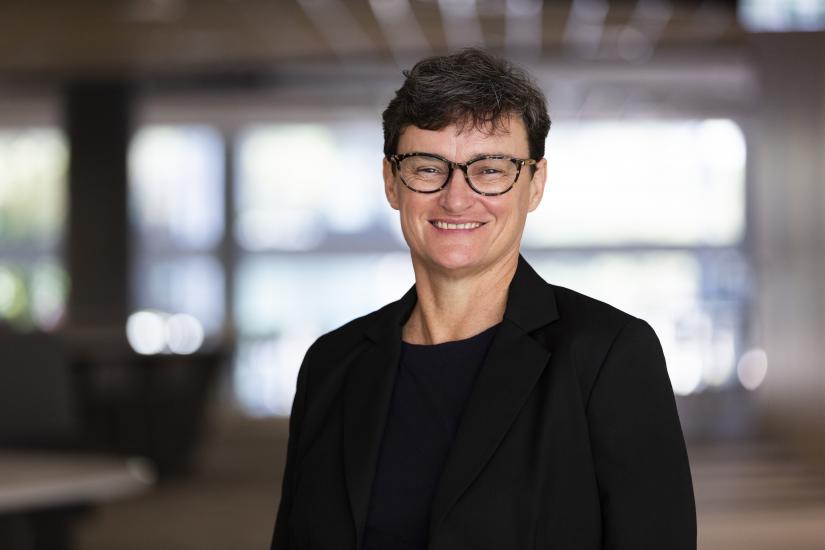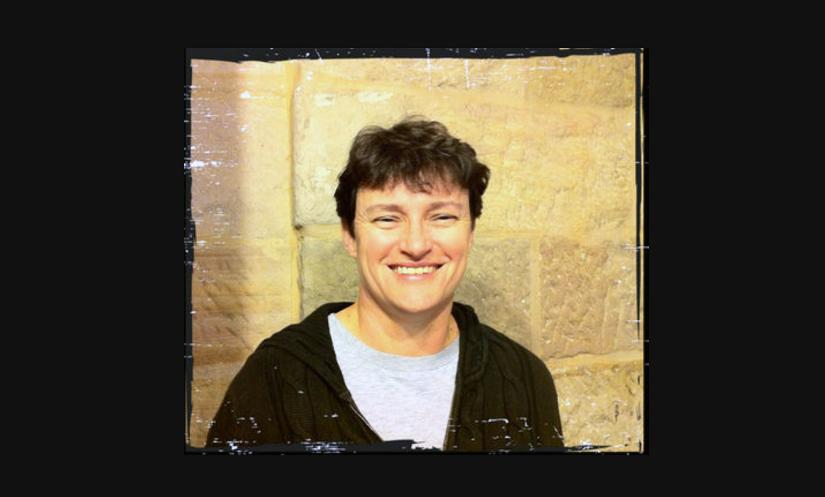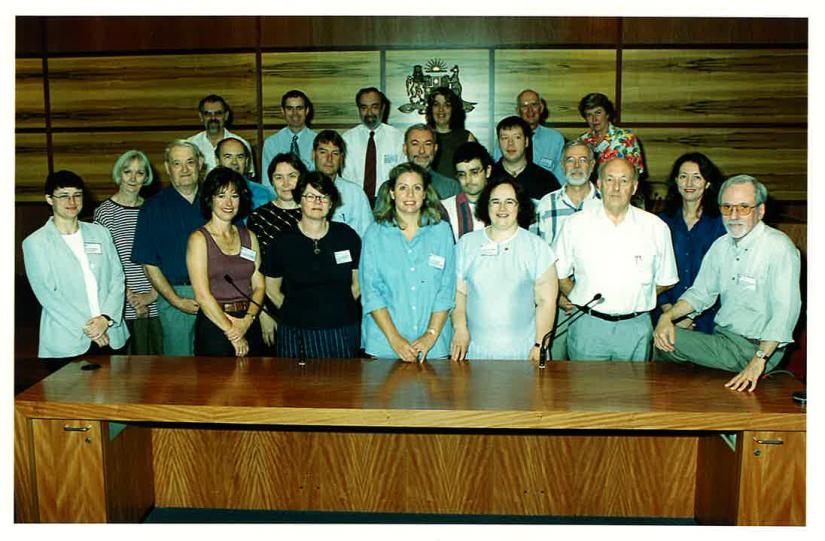There wouldn’t be many university deans who have risen through the ranks from associate lecturer through to leadership of their faculty, but that’s the story of Professor Anita Stuhmcke, who in December was announced as the new Dean of the UTS Faculty of Law.

Professor Anita Stuhmcke, picture by Andy Roberts
Since starting as an associate lecturer at UTS halfway through 1996, and along the way being “promoted, right through A to B to C to D to professor”, Anita Stuhmcke has undertaken research on access to justice that’s led to policy and law reform and held a “plethora” of different administrative roles both for the faculty and the university.
At the university level these have included Student Ombud; Chair of the University Appeals Committee and Student Conduct Committee; and current Board member of ActivateUTS. Anita is also currently an elected member of UTS Council.
For the faculty she has similarly acted on numerous Committees, Faculty Board and other Faculty research and teaching initiatives, has been Director Undergraduate Programs, acting Associate Dean Teaching and Learning and, until taking on the role of acting Dean in October last year, she was Associate Dean Research.
Where did it all start for you?
I was born and grew up in Nelson Bay (in Port Stephens in the Hunter Region), one of the 800 or so babies born in the Nelson Bay Hospital that is now the local Arts and Crafts Centre.
No one in my family had been to university and I needed to come to Sydney to study law because it wasn’t offered at Newcastle Uni. It was intimidating because I didn't know anyone who was a lawyer, I had no friends in Sydney and no contacts and no idea really about anything very much!
Fortunately, or unfortunately, I worked hard and had excellent marks. I did what I thought everybody had to do, particularly someone from my background (Anita’s father had an appliance business) where getting a job was a priority, so I was fortunate enough to apply for and receive a graduate position at Freehills, one of the big firms, then thought of academia (starting at Western Sydney University) and here I am!
Needless to say I deeply appreciate the power of education, particularly higher education and the difference it can make to people’s lives. That is one of the reasons I feel so very privileged to be in the position I am now in as dean and having the opportunity to support and work with the colleagues I do.

UTS has been your working home for more than 25 years now, what’s kept you in this patch of Ultimo?
The culture of the institution is such that, I think, it strives for quality without compromising on collegiality and friendliness. I think that’s quite unique, and from observations and anecdotal stories, in other institutions there’s not necessarily that sense of people pulling together for a cause.
I know we’re not perfect and it may not happen all the time, but I think that, for example, the social justice mission is a natural part of what we do, and I do think UTS people take that seriously and care deeply about it.
One of the great things about this faculty is that my colleagues really make a difference across their research and their teaching and I’m so proud to be part of that.
I haven’t left to work in another university as UTS as an institution has evolved in a direction that’s right for me. I've always been interested in research, so from the time I arrived I was producing materials, publishing articles and being involved as far as I could. Then came a sea change where the university threw its weight behind actively supporting and growing research across the board. In the faculty we have been fortunate to have great leadership and now we have a faculty where research is a clear priority, including of course research informed teaching and learning.
Under the general category of law we cover so many different strands, with centres ranging from Anti-Slavery Australia to AustLII (the Australasian Legal Information Institute). What we all have in common is an imperative for work that has real impact in the world.
I think it's not only that we put social justice at the centre of what we do, but that we actually strive to redress injustice.

Anita Stuhmcke, far left, at the first Australasian meeting of university complaint handlers held at UTS in 2001.
You’ve seen a good deal of change in your time at UTS, what have been the key points for you in what has changed and what has stayed the same?
Yes, the university has changed so much and that change has meant different structures and new people, new ways of doing things, new opportunities.
If I go back to when I first started here in 1996, I wouldn't have called us a research faculty then, but there was a lot of pride around the points of difference we had in our teaching.
if you look at the phases of the faculty, in the first phase when I joined, we were transitioning from a part-time institution where we mostly had students who studied at night, to something where we were bringing in undergraduates full time for the first time.
There was a particular point of pride, I think, in that we had flexible delivery that could cater for and produce students who could hit the ground running and were industry focused and industry ready.
That part of our mission has remained a constant, but it has evolved and become more sophisticated over the years. So, if we jump forward to where we are now, we still have an excellent reputation for industry-ready graduates, with a refined focus which is now more firmly fixed on making sure that we have technology ready students – students aware of a responsible use of technology and the power of role the law plays in that.
So, in terms of having that interface with the industry and technology we are distinctive and different and that’s an opportunity for us.
Where to next for the faculty and your own journey?
One of the things that I'm interested in doing is working even more closely with Jumbunna. I’d like to see an Indigenous-led strategy for our research and throughout our teaching and learning – thinking about and critiquing the fact that we teach law, yet law itself has been a tool of oppression and dispossession for Indigenous people.
We are a large and influential law school – we have the highest number of HDR Indigenous students of any CBD law school (I believe) – we need to analyse how to recast and pull down some of the legal structures that have limited First Nations people in the past.
We are a faculty that redresses injustice. In my own research my objective is to ensure that access to justice means that the systems work for the person. This objective has been a constant across my research into surrogacy and reproductive technologies and is a linking theme in work I have done on the institution of the ombudsman. There’s an international anthology coming out that I've edited with Professor Matthew Groves from Deakin University called The Ombudsman in the Modern State with contributions authors from around the world. For years I've been advocating for an international ombudsman research network which can make a real difference to global administrative justice and I think we're almost there.
Learn more about UTS Law
● Undergraduate law
● Postgraduate law
● Short courses and CPD
● Law research

